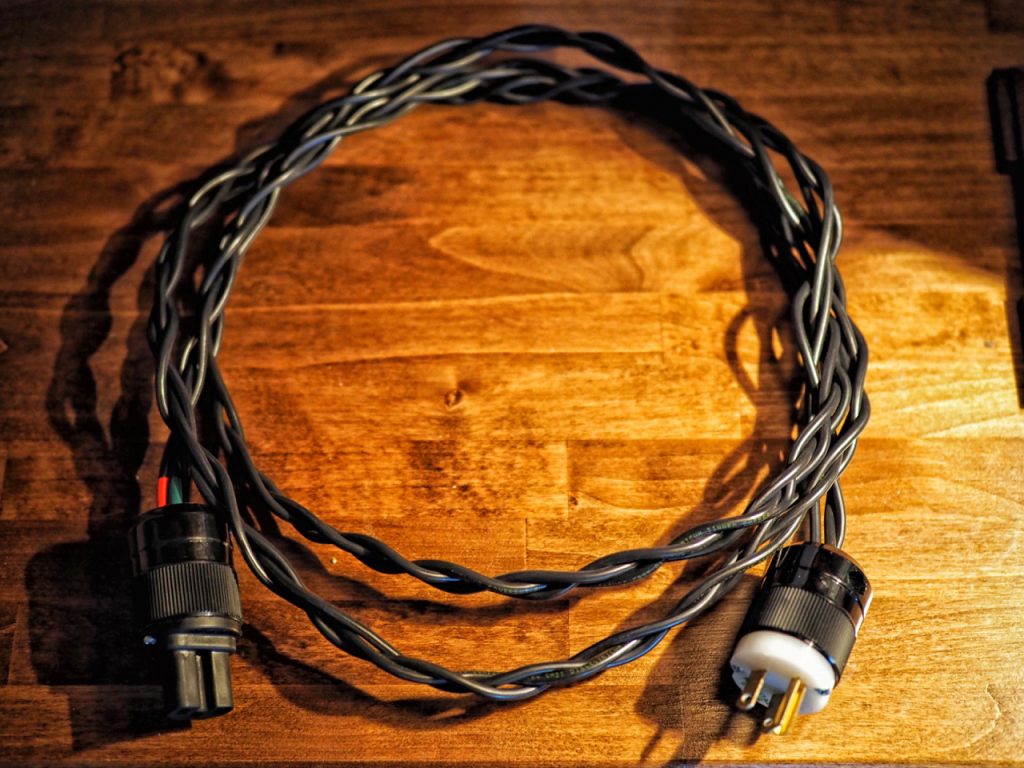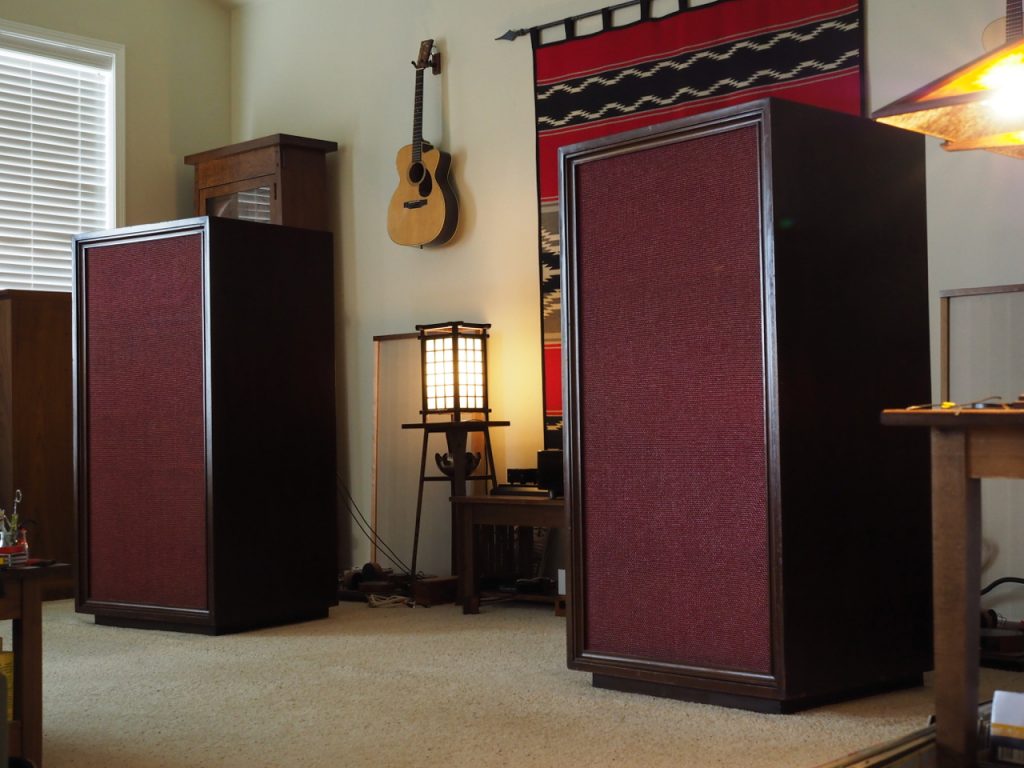There's been a lot of interest in the topic of the Duelund 600V DCA12GA Sn-Cu cable with its CAST-like dielectric that is primarily intended for use in power cables, versus the Duelund DCA12GA Sn-Cu cable with the baked oil-soaked-cotton dielectric that is intended primarily for use as speaker cables.

The 600VDC Duelund DCA12GA tinned-copper tone cable for power cables.
That interest is largely driven by the difference in pricing, as the 600V DCA12GA cable is about half the price ($9.95 USD per meter) of the DCA12GA with the baked oil-soaked cotton dielectric version ($19.95 USD per meter).

I get a lot of questions about this topic, which basically boil down to, "Which one is best?"

600V Duelund DCA12GA power cable
If you are building power cables the answer is easy, the 600V Duelund DCA12GA tinned-copper cable is the only choice, as it is not safe to use the Duelund DCA12GA Sn-Cu signal cable with its baked oil-soaked-cotton dielectric in high-voltage applications like power cables.

600V DCA12GA speaker cables connecting the SPEC amp to the Altec's.
But what about the Duelund 600V DCA12GA Sn-Cu CAST-like dielectric cable vs. the Duelund DCA12GA Sn-Cu baked oil-soaked-cotton dielectric cable as loudspeakers cables?
Both of these vintage-inspired Duelund DCA12GA tinned-copper cables wrap their dielectric around 65 strands of 0.25mm diameter tinned-copper wires, so the performance difference you hear is due to the dielectric.
I've been listening to the 600V DCA12GA cable as speaker cables with their CAST-like dielectric for a while now, and the DCA12GA with its oil-soaked and baked cotton dielectric even longer.

Tannoy Westminster Royal SE loudspeaker.
The DCA12GA with its baked and oil-soaked-cotton dielectric quickly became my favorite speaker cables for my Tannoy Westminster Royal SE loudspeakers due to their rich, vivid, nuanced, and well-balanced overall tonal balance (see the review HERE).
It has been interesting comparing the 600V DCA12GA version to the DCA12GA baked oil-soaked-cotton dielectric version as speaker cables.
Originally, I was just curious as to what the difference in sound quality would be between the two dielectrics, when used as speaker cables for the "Stokowski" Altec's with their Duelund CAST Sn-Cu crossovers, as part of the voicing process for the Duelund-Altec Project (HERE).

Stokowski Altec's with their Duelund CAST Sn-Cu crossovers.
I didn't initially consider the 600V DCA12GA to be a viable alternative to the regular DCA12GA for use as speaker cables, but now after listening to it for an extended period - and conditioning it on the Cable Cooker - I have changed my mind somewhat, and think the 600V DCA12GA might be preferred by certain listeners.
The 600V DCA12GA tinned-copper cable is a darker, richer, and more laid-back sounding than the regular DCA12GA. For a useful analogy, think of the darker, richer, full-bodied, and higher tannins Cabernet Sauvignon (the 600V DCA12GA), compared to the lighter colored, low to medium bodied, and low tannins Pinot Noir (the regular DCA12GA).
The regular DCA12GA is smooth, vivid, and nuanced, and provides more resolution than does the 600V DCA12GA. Images are more defined, and articulation of fine detail is more apparent with the regular DCA12GA.
As far as listening satisfaction goes, with either the 600V DCA12GA cables or the regular DCA12GA cables, I enjoyed both their presentations immensely while listening to music. I was never in a hurry to change from one cable to the other, and I could easily live with either as speaker cables with the "Stokowski" Altec's and their Duelund CAST Sn-Cu crossovers.
If you have brighter and more forward loudspeakers, I suspect you might enjoy the tonal balance of the 600V DCA12GA. If your speakers are more neutral - or laid-back - sounding, you might prefer the regular DCA12GA.
After quite a lot of listening, I decided that on my "Stokowski" Altec's that I preferred the regular DCA12GA to the 600V DCA12GA for its more open and more nuanced presentation, but I have a bit of a soft spot for the 600V DCA12GA's darker, sweeter, "hot fudge sundae" style of presentation that I got after 6 days on the Cable Cooker as well.
The nice thing about both these DCA12GA cables is that they maintain that wonderful tinned-copper engaging musical presentation while offering you a spectrum of voicing options.
Given both of these cables are bargains from a cost-performance standpoint, my recommendation would be to do what I did, and try both.
If you decide you like the regular DCA12GA better than the 600V DCA12GA as speaker cables on your loudspeakers, you have the win-win situation of being able to make a 600V DCA12GA power cord from your leftover 600V DCA12GA speaker cables, which is two listening adventures to complement your day!
As always, thanks for stopping by, and may the tone be with you!



























